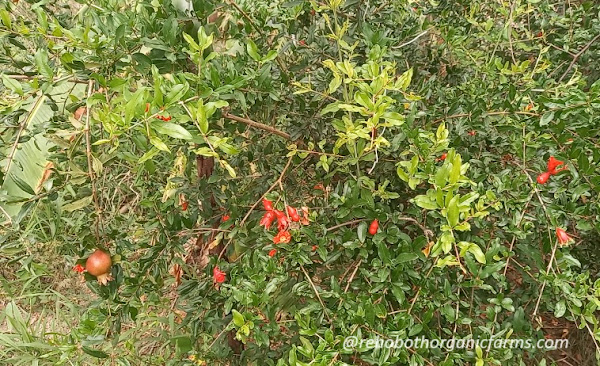How to fertilize Pomegranate Trees?
Pomegranate trees will flower and provide fruits throughout the year in central and southern India. Adequate fertilization is important to achieve high yield and increase fruit size and quality.
Normally Pomegranate tree will be flowering during June-July, September-October and January-February. However, for securing enhanced production of superior quality fruits as well as profit to the growers, proper fertilization is required.
Pomegranate, being an orchard crop, is a heavy feeder of nutrients. They require Nitrogen, Phosphorus, Potassium, Calcium, Magnesium, Sulphur, Iron, Manganese, Zinc, Copper and Boron for better yield. Pomegranate require both micro and macro nutrients to get good yields and best manure will be cattle compost. Well composted Cow Dung Manure is required in the soil for optimal growth of Pomegranate trees.
This manure will restore the fertility of the soil. It will also enhance the water holding capacity of the soil and add essential nutrients such as Nitrogen, Phosphorus, Potassium, Vitamins and proteins for the soil.
For 3 year old tree, apply 10 kg of cow dung compost per Pomegranate tree for better yield and 150 to 200 grams of Ammonium sulphate. This amount is increased every year, and for 5 year old tree you should apply 50 kg FYM and 1 Kg of Ammonium sulphate.
This compost is a nature friendly, non-toxic and best organic fertilizer for organic Pomegranate farming. It is a highly nutrient organic fertilizer and it promotes the growth of the Pomegranate trees to a greater extent.
Compared to other organic fertilizer, cow dung compost is the most powerful fertilizer and it has high level of living micro-organisms that are required for optimal growth of the plants.


Comments